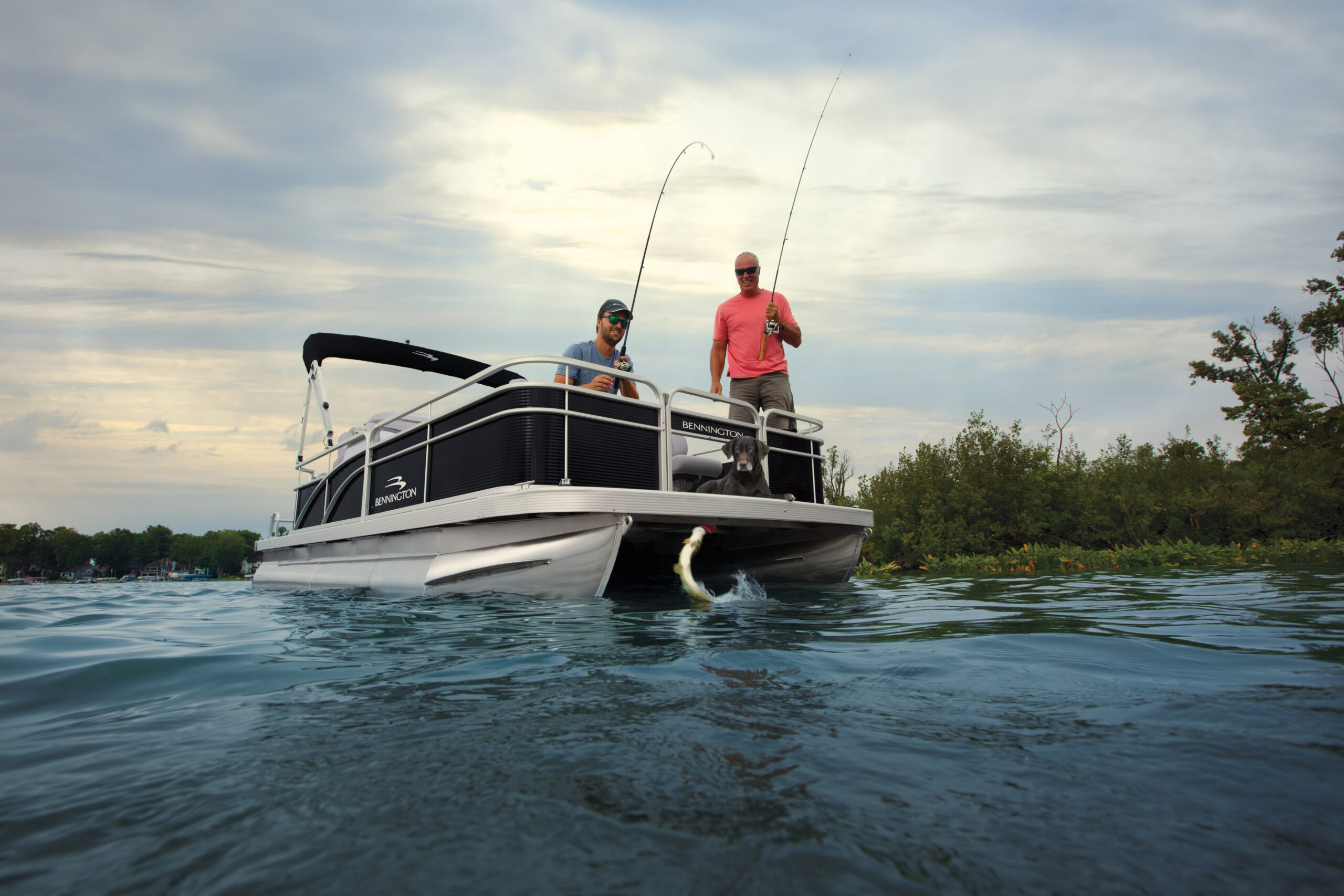6 Tips for Pontoon Boating on Saltwater
Imagine spending a beautiful day on the water with your loved ones. You are feeling the gentle breeze on your face and soaking up the sun. Pontoons make this experience even better. They offer endless opportunities for relaxation and fun. From fishing and swimming to enjoying a picnic or simply lounging on the deck, pontoons are the perfect way to create unforgettable memories with your family and friends. If you’re looking for the boat of your retirement dreams or you’re considering purchasing a pontoon boat for your family, we have six essential tips to help ensure a smooth and enjoyable saltwater adventure.
Make memories safely.
When it comes to pontoon boating on saltwater, safety should always be a top priority.
Secondly, while the warm sun can be delightful, it’s crucial to protect yourself from its harmful rays. Invest in quality sunscreen with a high SPF rating and UV-protective clothing. Don’t forget your sunglasses and a wide-brimmed hat. Staying sun-safe ensures you can enjoy your time on the water without the risk of sunburn or long-term skin damage.
There is nothing quite like the warm, sunny weather making its way for us to enjoy time on our boat.
Be mindful of the saltwater impacts on your engine.
While pontoons are well-suited for leisurely trips on saltwater, the environment can take a toll on your engine if not properly maintained.
Saltwater can lead to corrosion and other engine issues. Regular engine maintenance and servicing by a professional can help prolong the life of your pontoon boat and ensure smooth sailing on the saltwater. A well-maintained boat not only performs better but also provides you with peace of mind as you navigate the open waters. We at Boats or Sale created a boat maintenance checklist for after every outing. Go through this list and ensure you are doing your best to keep your boat running smoothly.
Rinse thoroughly after each use.
To avoid corrosion and buildup, it’s imperative to thoroughly rinse your pontoon with fresh water after every saltwater outing.
Pay special attention to areas like the pontoons, engine, and any metal fixtures which are particularly susceptible to salt damage. This practice helps extend the life of your boat and maintain its appearance and functionality.
Invest in marine-grade materials and accessories.
Stainless steel hardware, sealed electrical connections, and anti-fouling paint are significant investments that pay off in the long run.
When outfitting your pontoon boat for saltwater use, make sure that all materials and components, such as your anchor, chain, and electrical systems, are made of marine-grade material designed to withstand the corrosive effects of the salty environment.
Check the weather and tides.
Saltwater environments can be unpredictable.
Before setting off on your pontoon adventure, it’s critical to check the local weather forecasts and tidal charts. Watch for the following when boating with your pontoon:
- High winds
- Choppy waves
- Strong tides
These three things that are impacted by weather can quickly turn a day on the water into a challenging and very dangerous experience. It is always best to err on the side of caution when you notice the forecast seems unpredictable for your boating plans ahead. Understanding the weather patterns and tidal behavior will help you plan a safer route and timing for your boating experience.

There is so much to enjoy as summer ends, be sure to get on the water and take advantage!
Practice safe anchoring techniques.
Due to the nature of coastal currents and shifting sands, anchoring in saltwater can be more challenging than in a lake or river.
Ensure you’re using a reliable anchoring system that suits the seabed whether it’s sandy, rocky, or weedy. It’s also essential to learn proper anchoring technique, allowing enough scope—a length of anchor line six to seven times the depth of the water—to accommodate changes in tides and weather conditions. You can read more about the basics of anchoring a boat here.
Remember that with these tips and a good dose of common sense, pontoon boating on saltwater can be an immensely rewarding experience. Always adhere to boating safety rules, and don’t hesitate to ask for local advice or join a community of fellow boaters for the latest insights and shared experiences. If you’re looking for a team of experts to help answer any questions, our team is ready for you to contact us!
